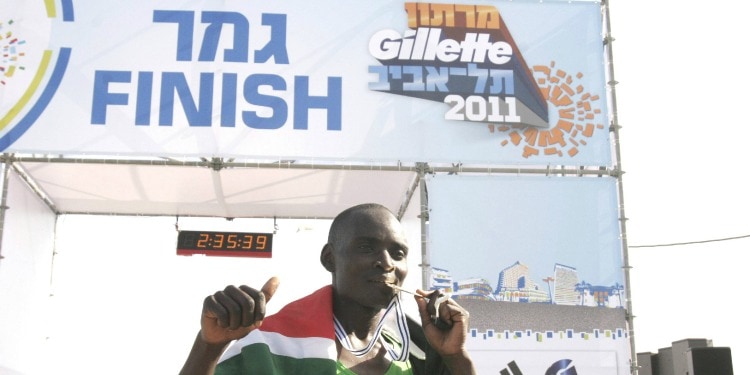Finish with Faith
The Fellowship | September 11, 2019

Why, my soul, are you downcast?
Why so disturbed within me?
Put your hope in God,
for I will yet praise him,
my Savior and my God. — Psalm 42:11
In the weeks leading up to the High Holy Days, the Jewish people focus on Scriptures from the Torah that provide hope and inspiration as they prepare for Rosh Hashanah and Yom Kippur. This is one of 12 devotions on the hope we have as people of faith. To learn more about the High Holy Days, download our complimentary devotional guide.
With Psalm 42, we begin Book II of Psalms. It opens with a series of psalms written by the “Children of Korah.” Who were these men?
According to Jewish tradition, when Korah rebelled against Moses in the desert, the land opened up and swallowed him along with his sons. Down in the ground, the sons of Korah did not immediately perish. They stood in a hopeless situation buried deep in the earth. And yet, from there hope sprung forth. They repented, turned to God, and were miraculously saved. During their time underground they composed these psalms.
The Jewish sages explain that Psalm 42 also relates to the future destruction of the Temple in Jerusalem, as the psalmist referenced the House of God that once was (v.4). Either way, the underlying theme of this psalm is the ebb and flow of hope in the most desperate situations. It’s a dance and rhythm that we all probably have experienced.
Can you relate? Have you ever been in an extremely trying situation where hope is all but gone? You resolve to have faith, maybe even proclaim it out loud. Then, a few hours later when you are tired and weary, your soul is downcast – worrying, fearful of what the future might bring. We witness this dance in Psalm 42. Throughout the psalm, the psalmist affirmed his faith, yet his soul became downcast once more. But the part that really matters is how the dance ends. Psalm 42 ends with an affirmation: “Put your hope in God, for I will yet praise him, my Savior and my God” (v.11).
Though our faith may falter at times, we must finish with faith.
I am reminded of the time in 2 Chronicles 20 when the king of Judah, Jehoshaphat, was confronted by several attacking armies. The battle seemed hopeless. The enemy had already penetrated Israel and conquest seemed imminent. I’m sure the people wavered between worry and faith, but listen to what Jehoshaphat did. He gathered the people and together they prayed, “Our God, will you not judge them? For we have no power to face this vast army that is attacking us. We do not know what to do, but our eyes are on you” (v.12). He acknowledged the hopelessness of the situation but expressed his hope in God.
Friends, no matter what you may be facing today, be it a difficult conversation with a family member, a serious medical issue, or a gloomy financial outlook, we can pray like the king of Judah did. Let’s say, “God, we have no power to do it on our own. We do not know what to do, but our eyes are on you.” Even when our faith falters, let us return to this prayer and finish with faith.
